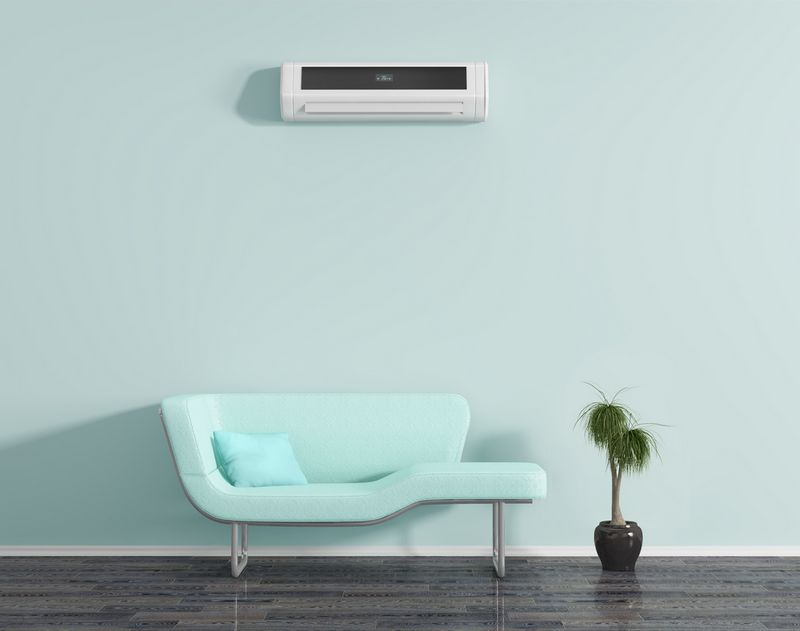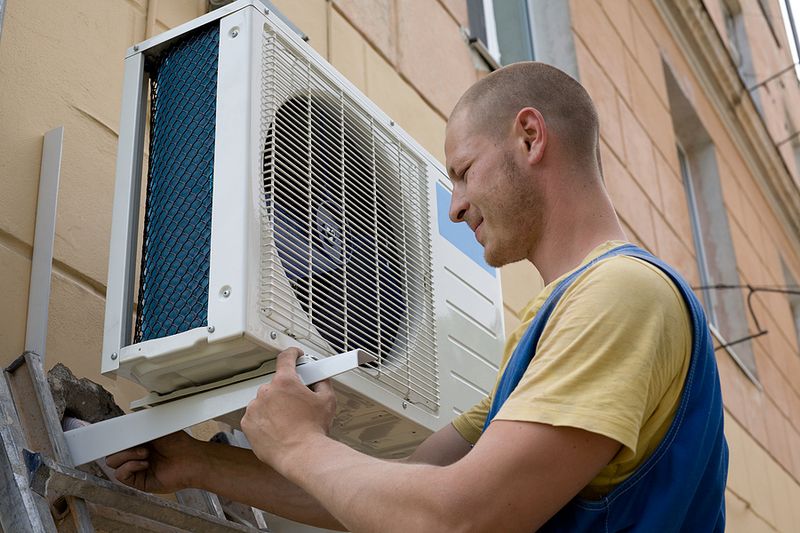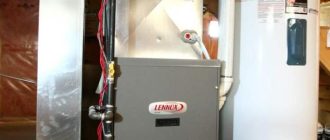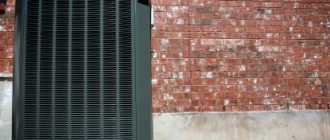
Five Things to Consider When Buying a New Home Air Conditioner
When it comes to buying a new home air conditioner, there are several important factors to consider. The right air conditioner can make a huge difference in the comfort of your home, as well as your energy bills. With so many options available on the market, it can be overwhelming to determine which one is the best fit for your needs. That’s why we’ve put together this expert guide to help you navigate the process and make an informed decision.
First and foremost, you’ll want to consider the size and cooling capacity of the air conditioner. It’s crucial to choose a unit that is powerful enough to adequately cool your space without being too large and inefficient. The cooling capacity is usually measured in BTUs (British Thermal Units), and it’s important to match this number to the size of your room or home. An air conditioner that is too small will struggle to cool the space, while one that is too large will cycle on and off frequently, wasting energy.
Secondly, you’ll want to take a look at the energy efficiency of the air conditioner. Energy-efficient models can help you save money on your utility bills in the long run, so it’s worth investing in a unit with a high energy efficiency rating. Look for air conditioners with the ENERGY STAR label, as these meet strict guidelines set by the U.S. Environmental Protection Agency.
Another important consideration is the type of air conditioner that best suits your needs. There are several options available, including window units, portable units, ductless mini-split systems, and central air conditioning. Each type has its own advantages and disadvantages, so it’s important to weigh the pros and cons and choose the one that fits your lifestyle and budget.
Additionally, noise level is an important factor to consider, especially if you plan on placing the air conditioner in a bedroom or living area. Some air conditioners can be quite noisy, which may disrupt your sleep or deter you from using it during the day. Look for units with a low decibel rating, or consider models with features like a sleep mode or a quiet operation setting.
Last but not least, don’t forget to consider the price and warranty of the air conditioner. While it’s tempting to go for the cheapest option, it’s important to balance cost with quality. Look for a reputable brand with good customer reviews, and consider the length and coverage of the warranty.
By taking these five factors into consideration – size and cooling capacity, energy efficiency, type, noise level, and price and warranty – you can ensure that you make the right choice when buying a new home air conditioner. Remember, it’s an investment in your comfort and energy savings, so take your time and choose wisely.
Key Factors for Choosing Home Air Conditioner
Choosing the right air conditioner for your home is an important decision. There are several key factors to consider in order to make the best choice for your cooling needs.
- Size: The size of the air conditioner is crucial for its efficiency and effectiveness. You need to consider the size of the room or rooms that need to be cooled and select an air conditioner with the appropriate cooling capacity.
- Energy Efficiency: An energy-efficient air conditioner not only helps reduce your carbon footprint but also saves you money on your monthly energy bills. Look for models with a high energy-efficiency rating, such as ENERGY STAR certified units.
- Noise Level: Consider the noise level of the air conditioner, especially if you plan to use it in your bedroom or living room. Some air conditioners produce loud noise, which can be disturbing, while others come with noise-reducing features.
- Installation: Make sure to consider the ease of installation. Some air conditioners require professional installation, while others can be easily installed as a DIY project. Additionally, consider whether the unit requires a window or can be mounted on a wall.
- Additional Features: Look for additional features that enhance the convenience and functionality of the air conditioner. These may include remote control operation, programmable timers, sleep mode, adjustable fan speeds, and air purification filters.
By considering these key factors, you can make an informed decision and choose the best home air conditioner for your cooling needs.
Consumer Demand for Air Conditioning
In today’s modern society, air conditioning has become a staple in many households. With rising temperatures and unpredictable weather patterns, more and more consumers are looking to invest in air conditioning systems. This demand is driven by several factors that contribute to the overall comfort and convenience that air conditioning provides.
1. Comfort: One of the main reasons why consumers demand air conditioning is for the comfort it brings. Whether it’s a sweltering summer day or a humid night, air conditioning helps regulate the indoor temperature and create a comfortable living environment.
2. Health benefits: Air conditioning also offers various health benefits. It helps in filtering and purifying the air, removing allergens, dust, and pollutants. This can be especially beneficial for individuals with respiratory conditions or allergies.
3. Energy efficiency: With the advancement in technology, air conditioning systems have become more energy-efficient, resulting in lower energy bills for consumers. This has led to an increase in demand as homeowners seek to reduce their carbon footprint and minimize their energy costs.
4. Productivity: Another factor driving the demand for air conditioning is the impact it has on productivity. Studies have shown that comfortable temperatures in the workplace can improve focus, concentration, and overall productivity. Employers recognize this and are more inclined to invest in air conditioning for their offices and commercial spaces.
5. Lifestyle expectations: In today’s fast-paced world, consumers have higher expectations for their lifestyle and living conditions. Air conditioning has become a symbol of modern living and a necessity for many households. It is no longer seen as a luxury but rather a standard feature in residential properties.
Overall, the increasing consumer demand for air conditioning is driven by the desire for comfort, health benefits, energy efficiency, productivity, and meeting lifestyle expectations. As the world continues to experience rising temperatures and changing climate patterns, air conditioning systems are likely to remain in high demand.
Energy Efficiency of the Air Conditioner
When purchasing a new air conditioner for your home, it is important to consider its energy efficiency. An energy-efficient air conditioner can not only help you save money on your monthly energy bills but also have a positive impact on the environment by reducing carbon emissions.
Here are five things to consider when evaluating the energy efficiency of an air conditioner:
- SEER rating: The Seasonal Energy Efficiency Ratio (SEER) is a measurement of the cooling output of an air conditioner divided by the power input over a typical cooling season. A higher SEER rating indicates greater energy efficiency. Look for air conditioners with a SEER rating of 14 or higher for optimal energy savings.
- EER rating: The Energy Efficiency Ratio (EER) is similar to the SEER rating but measures the cooling output of an air conditioner divided by the power input under a specific set of conditions. A higher EER rating indicates better energy efficiency. Look for air conditioners with an EER rating of 12 or higher.
- Energy Star certification: The Energy Star label is awarded to air conditioners that meet strict energy efficiency guidelines set by the Environmental Protection Agency (EPA). Choosing an Energy Star-certified air conditioner can ensure that you are getting a product that has been independently verified for its energy-saving capabilities.
- Inverter technology: Air conditioners with inverter technology are designed to vary the speed of the compressor motor, allowing the unit to run at a lower capacity when cooling demand is lower. This results in energy savings compared to traditional air conditioners that operate at a fixed speed.
- Proper sizing: It is important to choose an air conditioner that is properly sized for your home. An oversized unit will cycle on and off more frequently, wasting energy, while an undersized unit will struggle to cool your home efficiently. Consult with a professional to determine the correct size for your specific needs.
By considering these factors, you can ensure that you are selecting an air conditioner that will provide optimal energy efficiency and cooling performance for your home.
Cooling Capacity and Room Size
When buying a new air conditioner for your home, it is important to consider the cooling capacity and the size of the room you want to cool. The cooling capacity, also known as the BTU (British thermal unit) rating, determines how efficiently the air conditioner can cool a given space.
The size of the room is another important factor to consider. If you have a small room, such as a bedroom or office, you may not need a high-capacity air conditioner. On the other hand, if you have a large living area or a room with high ceilings, you will need an air conditioner with a higher cooling capacity to effectively cool the space.
It is recommended to choose an air conditioner with a cooling capacity that matches the size of the room. A too small air conditioner will struggle to cool the room, leading to poor cooling performance and increased energy consumption. On the other hand, a too large air conditioner will cycle on and off frequently, resulting in inefficient cooling and higher energy bills.
To determine the suitable cooling capacity for your room, you can use a general rule of thumb: calculate approximately 20 BTUs for each square foot of space. For example, a 500 square foot room would require an air conditioner with a cooling capacity of around 10,000 BTUs. However, keep in mind that other factors, such as the room’s insulation, ceiling height, and the number of windows, can also affect the cooling requirements.
It is always best to consult with a professional HVAC technician or refer to the manufacturer’s recommendations to determine the appropriate cooling capacity for your specific room size and requirements.
Noise Level of the Air Conditioner
When buying a new home air conditioner, one important factor to consider is the noise level of the unit. While air conditioners are designed to keep you cool and comfortable, they can also generate noise that can be disruptive and bothersome. Here are five things to consider when evaluating the noise level of an air conditioner:
- Determine the decibel rating: The noise level of an air conditioner is typically measured in decibels (dB). Look for the decibel rating in the product specifications to get an idea of how loud or quiet the unit will be. Ideally, you would want an air conditioner with a lower decibel rating, as this indicates a quieter operation.
- Compare with industry standards: Check if the decibel rating of the air conditioner falls within the industry standards. This can give you a benchmark to compare different models and manufacturers. Some industry standards may recommend specific maximum decibel levels for residential air conditioners.
- Consider location: The noise level of an air conditioner can also be affected by its location within your home. For example, if the unit is installed near a bedroom or living area, you may want to opt for a quieter model to minimize disruption. On the other hand, if the air conditioner will be installed in a garage or basement, noise level may be less of a concern.
- Look for noise-reducing features: Some air conditioners come with noise-reducing features, such as insulated cabinets and vibration dampeners. These features can help minimize the sound produced by the unit, making it more comfortable for you and your family.
- Read reviews and ratings: Before making a final decision, it’s a good idea to read reviews and ratings from other consumers who have purchased the same air conditioner model. They can provide insights into the noise level and overall satisfaction with the unit.
By considering the noise level of an air conditioner, you can choose a unit that will keep your home cool without creating unnecessary noise pollution.
Maintenance and Durability
Maintenance and durability are important factors to consider when buying a new home air conditioner. Here are five things you should keep in mind:
- Regular maintenance: It is essential to regularly maintain your air conditioner to ensure its optimal performance. This includes cleaning or replacing the air filters, checking and cleaning the condenser coils, and inspecting the fan blades. Regular maintenance will not only help in improving the efficiency of the unit, but also extend its lifespan.
- Warranty: Look for air conditioners that come with a warranty. A warranty protects you from any manufacturing defects or malfunctions that may occur within a specific period of time. Make sure to read the warranty terms and conditions to understand what is covered and what is not.
- Quality materials: Consider air conditioners that are made with high-quality materials. The durability of the unit depends on the materials used in its construction. Look for models with corrosion-resistant components, sturdy cabinets, and durable fan blades.
- Energy efficiency: An energy-efficient air conditioner not only reduces your electricity bills but also contributes to its overall durability. Look for models with high energy-efficiency ratings, such as SEER (Seasonal Energy Efficiency Ratio) ratings. These ratings indicate how efficiently the unit can cool the air compared to the electricity it consumes.
- Brand reputation: Consider the reputation of the brand before making a purchase. A reputable brand is more likely to offer reliable and durable air conditioners. Read reviews, check ratings, and ask for recommendations from friends or family who have experience with a specific brand or model.
By considering these factors, you can ensure that your new home air conditioner is easy to maintain and has the durability to last for many years, providing you with reliable cooling during hot summer months.
Different Types of Air Conditioners
When it comes to buying a new home air conditioner, there are several different types to choose from. Each type has its own advantages and disadvantages, so it’s important to understand the differences before making a decision. Here are five of the most common types of air conditioners:
- Window Air Conditioners: These air conditioners are designed to fit in a standard window frame. They are easy to install and can be a cost-effective option for cooling a single room or a small space.
- Split Air Conditioners: Split air conditioners consist of two units – an indoor unit and an outdoor unit. The indoor unit is typically mounted on a wall or ceiling, while the outdoor unit is installed outside the building. Split air conditioners provide energy-efficient cooling and can be used to cool multiple rooms.
- Portable Air Conditioners: Portable air conditioners are self-contained units that can be moved from room to room. They are easy to install and don’t require any permanent installation. Portable air conditioners are a popular choice for cooling small spaces or for use in rental properties.
- Ductless Mini-Split Air Conditioners: Similar to split air conditioners, ductless mini-split air conditioners consist of separate indoor and outdoor units. However, they don’t require any ductwork for installation. Ductless mini-split systems offer flexibility in terms of zoning and can be more energy-efficient.
- Central Air Conditioning: Central air conditioning systems are designed to cool an entire house or building. They consist of a central unit that cools and dehumidifies the air, and a series of ducts that distribute the cooled air throughout the building. Central air conditioning provides consistent cooling and is the most effective option for cooling large spaces.
When choosing an air conditioner, consider factors such as the size of the space you need to cool, your budget, energy efficiency, and any specific needs or preferences you may have. Consulting with a professional can also help you select the right type and size of air conditioner for your home.
Window Air Conditioners
Window air conditioners are a popular choice for cooling individual rooms or small spaces. They are easy to install and can fit into most standard-sized windows. Here are some important factors to consider when buying a window air conditioner:
- Size: Window air conditioners come in various sizes, so it’s important to choose one that is appropriate for the size of the room you want to cool. A unit that is too small may struggle to cool the room, while a unit that is too big may cycle on and off frequently, wasting energy.
- Energy Efficiency: Look for a window air conditioner with a high energy efficiency rating. An energy-efficient unit can help you save on your energy bills while also reducing your carbon footprint.
- Noise Level: Consider the noise level of the window air conditioner. Some models can be quite noisy, which may be disruptive if you plan to use the air conditioner in a bedroom or living room. Look for a unit with a low noise output.
- Features: Determine what features are important to you. Some window air conditioners come with convenient features such as a remote control, programmable timer, or multiple fan speeds. Consider your needs and preferences when choosing a unit.
- Price: Set a budget for your window air conditioner purchase. Compare prices and features to find a unit that offers the best value for your money. Keep in mind that higher-priced models may have more advanced features and greater energy efficiency.
Keep these factors in mind when shopping for a window air conditioner. By considering the size, energy efficiency, noise level, features, and price, you can find a unit that meets your needs and keeps you cool during the hot summer months.
Portable Air Conditioners
Portable air conditioners are a versatile and convenient option for cooling specific areas of your home. Unlike traditional central air conditioning systems, portable units are designed to be moved from room to room, making them ideal for those who don’t want to invest in a full HVAC system or for use in spaces that are not easily accessible by ductwork.
Here are a few things to consider when deciding if a portable air conditioner is right for you:
- Portability: One of the main advantages of portable air conditioners is their portability. These units typically come with caster wheels, allowing you to easily move them from room to room as needed. This makes them a great option for renters or for those who frequently change their living arrangements.
- Cooling Capacity: Before purchasing a portable air conditioner, it’s important to consider the cooling capacity that you need. Portable units are available in various sizes and cooling capacities, so you’ll want to choose one that is suitable for the size of the room you’ll be using it in. Be sure to check the unit’s British thermal units (BTU) rating, as this will indicate its cooling power.
- Energy Efficiency: Portable air conditioners can consume a significant amount of energy, so it’s important to consider their energy efficiency. Look for units that have an Energy Star rating, as these are designed to be more energy-efficient and can help you save on electricity costs in the long run.
- Noise Levels: While portable air conditioners provide effective cooling, they can also generate noise. Before purchasing a unit, it’s a good idea to read reviews or check the manufacturer’s specifications to determine the noise levels produced by the unit. This is especially important if you plan on using the portable air conditioner in a bedroom or other quiet areas of your home.
- Additional Features: Portable air conditioners often come with additional features that can enhance their functionality. Some units have built-in dehumidifiers, which can help remove excess moisture from the air. Others may come with programmable timers or remote controls, allowing you to easily adjust the temperature and settings from a distance.
Before purchasing a portable air conditioner, take the time to research and compare different models to find one that best suits your needs and budget. Consider factors such as portability, cooling capacity, energy efficiency, noise levels, and additional features to ensure you make the right choice for your home.
Split Air Conditioners
A split air conditioner is a type of air conditioning system that is divided into two main units: an indoor unit and an outdoor unit. The indoor unit contains the evaporator coil, which cools and dehumidifies the air, while the outdoor unit houses the compressor and condenser coil, which release the heat absorbed from the indoor air. These units are connected by refrigerant lines, electrical cables, and drainage pipes.
Split air conditioners offer several advantages over other types of air conditioning systems:
- Efficiency: Split air conditioners are known for their energy efficiency. By separating the cooling and heating functions into two units, split air conditioners can provide more targeted and efficient cooling for specific zones or rooms.
- Quiet Operation: Split air conditioners produce minimal noise because the noisy components, such as the compressor, are located in the outdoor unit. This makes split air conditioners a popular choice for bedrooms, living rooms, and other areas where noise can be a concern.
- Flexibility: Split air conditioners offer flexibility in terms of installation. The indoor unit can be mounted on a wall or ceiling, allowing for easy placement and integration into existing interior design. Additionally, the outdoor unit can be installed at a convenient location outside the house.
- Zoning: Split air conditioners can be equipped with multiple indoor units that are connected to a single outdoor unit. This allows for zoning, where different rooms or areas can be cooled or heated independently, providing personalized comfort.
- Aesthetic Appeal: Split air conditioners are often considered aesthetically pleasing compared to other types of air conditioning systems. The indoor unit is sleek and compact, blending seamlessly with the room’s decor, while the outdoor unit can be tucked away in a less visible location.
Overall, split air conditioners offer efficient cooling, quiet operation, flexibility in installation, zoning capabilities, and aesthetic appeal. These factors make split air conditioners a popular choice for residential and commercial applications.
Ductless Mini-Split Air Conditioners

Ductless mini-split air conditioners are a popular option for cooling homes, especially in situations where a traditional central air conditioning system is not feasible or desired. These systems are great for homes that do not have existing ductwork, or for individuals who want to cool specific rooms or zones of their home.
1. Easy Installation: One of the main advantages of ductless mini-split air conditioners is their ease of installation. Unlike central air conditioning systems that require extensive ductwork, ductless mini-splits only require a small hole to connect the indoor and outdoor units. This makes them a cost-effective and convenient cooling solution.
2. Zoned Cooling: Ductless mini-split air conditioners offer the ability to cool specific rooms or zones of your home independently. Each indoor unit can be controlled separately, allowing you to set different temperatures for different areas. This not only increases comfort levels but also helps save energy by only cooling occupied spaces.
3. Energy Efficiency: Ductless mini-split air conditioners are known for their energy efficiency. Since they do not rely on ducts to deliver cool air, there is no energy loss associated with duct leaks or inefficient airflow. Additionally, many models come with advanced features like programmable timers and energy-saving modes to further reduce energy consumption.
4. Quiet Operation: Another benefit of ductless mini-split air conditioners is their quiet operation. The indoor units are designed to operate at low noise levels, ensuring a peaceful and comfortable environment in your home. This is especially important for bedrooms or areas where noise sensitivity is a concern.
5. Flexibility: Ductless mini-split air conditioners offer a high degree of flexibility in terms of installation options. The compact size of the indoor units allows for placement in various locations, such as on walls or ceilings. Additionally, the outdoor units can be installed at ground level, on brackets, or even on rooftops. This flexibility makes it easier to find a suitable location for the units that best fits your home’s layout and aesthetics.
Central Air Conditioners
When shopping for a new home air conditioner, one option to consider is a central air conditioning system. These systems are designed to cool the entire home, distributing cool air through a series of ducts and vents. Here are some factors to keep in mind when considering a central air conditioner:
- Size: It’s important to choose the right size central air conditioner for your home. A unit that is too small will struggle to cool the space adequately, while a unit that is too large will cycle on and off frequently, wasting energy. An HVAC professional can perform a load calculation to determine the correct size for your home.
- Efficiency: Look for central air conditioners with a high SEER (Seasonal Energy Efficiency Ratio) rating. A higher SEER rating means the unit is more energy-efficient and can potentially lower your utility bills. Energy Star certified central air conditioners are a good option for energy efficiency.
- Noise Level: Consider the noise level of the central air conditioner. Look for units with low decibel ratings or features like noise-reducing technologies. This is especially important if you have bedrooms or living spaces near the outdoor unit.
- Maintenance: Find out what kind of maintenance is required for the central air conditioning system. Regular maintenance, such as replacing air filters and cleaning coils, is essential for optimal performance and longevity. Some models may also require professional maintenance or yearly service contracts.
- Warranty: Check the warranty offered by the manufacturer. A good warranty can provide peace of mind and protect against unexpected repair costs. Look for warranties that cover both the compressor and parts, and consider purchasing an extended warranty for added protection.
A central air conditioner can provide efficient and effective cooling for your home. By considering these factors, you can choose a system that meets your needs and provides reliable comfort throughout the hot summer months.
Assessing the Air Conditioner’s Cooling Efficiency
When buying a new home air conditioner, assessing its cooling efficiency is a crucial factor to consider. The cooling efficiency of an air conditioner determines how well it can cool a room or a space. Here are some key points to keep in mind when evaluating the cooling efficiency of an air conditioner:
- SEER Rating: The Seasonal Energy Efficiency Ratio (SEER) is an important metric used to measure the cooling efficiency of an air conditioner. The higher the SEER rating, the more energy-efficient the unit is. Look for air conditioners with a higher SEER rating to ensure better cooling efficiency.
- Energy Star Certification: Air conditioners with an Energy Star certification are designed to meet strict energy efficiency guidelines set by the Environmental Protection Agency (EPA). Energy Star certified air conditioners are more energy-efficient and can help you save on energy costs while providing effective cooling.
- Cooling Capacity: The cooling capacity of an air conditioner is measured in British Thermal Units (BTUs). It indicates the amount of heat an air conditioner can remove from a room in an hour. Choose an air conditioner with a cooling capacity suitable for the size of the room or space you want to cool.
- Variable Speed Compressor: Air conditioners with a variable speed compressor can adjust the cooling output based on the temperature needs of a room. This feature allows the air conditioner to operate at different speeds, optimizing energy usage and improving cooling efficiency.
- Proper Sizing and Installation: Ensuring that the air conditioner is properly sized and installed is essential for optimal cooling efficiency. An oversized or undersized air conditioner may not cool the room effectively and could lead to increased energy consumption. It is recommended to consult with a professional HVAC technician to determine the right size and ensure proper installation.
By taking these factors into consideration, you can assess the cooling efficiency of a home air conditioner and make an informed decision when purchasing a new unit. Remember to prioritize energy efficiency and consult with professionals for assistance if needed. A well-performing air conditioner can provide a comfortable living environment while minimizing energy consumption and costs.
BTU and EER Ratings
When buying a new air conditioner for your home, it’s important to pay attention to both BTU (British Thermal Units) and EER (Energy Efficiency Ratio) ratings. These two factors will help you determine the cooling capacity and energy efficiency of the unit, respectively.
BTU Ratings:
- BTU rating refers to the cooling capacity of an air conditioner. It measures how much heat the unit can remove from a room in a given time.
- The higher the BTU rating, the larger the space the air conditioner can effectively cool.
- It’s essential to choose an air conditioner with a BTU rating suitable for the size of the room or area you intend to cool. A unit with insufficient BTU may struggle to cool the space, while one with excessive BTU may cycle on and off too frequently.
- Refer to the manufacturer’s guidelines or consult an HVAC professional to determine the appropriate BTU rating for your specific needs.
EER Ratings:
- EER rating measures the energy efficiency of an air conditioner by comparing the cooling output to the energy consumed.
- A higher EER rating indicates a more energy-efficient unit, which can help you save on your energy bills.
- Look for air conditioners with EER ratings of 12 or higher for optimal energy efficiency.
- EER ratings are displayed prominently on the packaging or product specifications of air conditioners, making it easier to compare different models.
Considerations:
- It’s important to strike a balance between BTU and EER ratings when selecting an air conditioner.
- Choose a unit with a BTU rating suitable for the size of the space, while also selecting one with a decent EER rating for energy efficiency.
- Keep in mind that larger air conditioners with higher BTU ratings may have lower EER ratings, as they consume more energy to cool larger spaces.
- Consider your climate and usage patterns when determining a target EER rating. If you live in a region with hot summers and use your air conditioner frequently, a higher EER rating may be worth the investment.
By understanding and considering both BTU and EER ratings, you can make an informed decision when buying a new home air conditioner that provides adequate cooling for your space while maximizing energy efficiency.
Energy Star Certification
When buying a new home air conditioner, one important factor to consider is whether it is Energy Star certified. Energy Star is a program run by the U.S. Environmental Protection Agency (EPA) and the Department of Energy (DOE) that promotes energy efficiency in products, including air conditioners. Here are five reasons why you should look for an Energy Star certified air conditioner:
- Energy Efficiency: Energy Star certified air conditioners are designed to be more energy efficient than standard models. They use advanced technologies and designs that allow them to cool your home effectively while using less electricity. This can result in significant energy savings and lower utility bills.
- Environmental Benefits: Using less energy means reducing greenhouse gas emissions and other pollutants that contribute to climate change and air pollution. By choosing an Energy Star certified air conditioner, you are helping to protect the environment and reduce your carbon footprint.
- Quality and Performance: Energy Star certified air conditioners undergo rigorous testing and meet strict standards for energy efficiency and performance. They are designed to deliver reliable cooling performance and maintain comfortable indoor temperatures while also saving energy.
- Long-Term Savings: While Energy Star certified air conditioners may have a higher upfront cost compared to non-certified models, they can provide long-term savings through reduced energy consumption. Over time, the energy savings can offset the initial investment, making Energy Star certified air conditioners a cost-effective choice.
- Incentives and Rebates: Many utility companies and government agencies offer incentives and rebates for purchasing Energy Star certified appliances, including air conditioners. These incentives can help offset the cost of buying a new air conditioner and make an Energy Star certified model even more affordable.
Overall, choosing an Energy Star certified air conditioner is an excellent decision for both energy savings and environmental benefits. Always look for the Energy Star label when purchasing a new home air conditioner to ensure you are making an informed and environmentally-friendly choice.
SEER and HSPF Ratings
When buying a new home air conditioner, it’s important to consider the SEER and HSPF ratings. These ratings can help you understand the energy efficiency of the unit and determine how much it will cost to operate.
SEER stands for Seasonal Energy Efficiency Ratio and is a measure of the cooling efficiency of an air conditioner. The higher the SEER rating, the more efficient the unit is. A higher SEER rating also means lower energy consumption and potentially lower operating costs. In general, it is recommended to choose an air conditioner with a SEER rating of 14 or higher to ensure energy efficiency.
HSPF stands for Heating Seasonal Performance Factor and is a measure of the heating efficiency of a heat pump. Similar to SEER, a higher HSPF rating indicates a more efficient heat pump. It is important to note that HSPF is specific to heat pumps and is not applicable to air conditioners. If you are considering a heat pump as your cooling and heating solution, look for a unit with a HSPF rating of 8.0 or higher for optimal efficiency.
Both SEER and HSPF ratings are determined by the Air Conditioning, Heating, and Refrigeration Institute (AHRI). It is always a good idea to check these ratings before purchasing a new air conditioner to ensure you are getting an energy-efficient and cost-effective unit.
To summarize, when buying a new home air conditioner, pay attention to the SEER and HSPF ratings to ensure energy efficiency and cost savings in the long run.
Cooling Seasonal Performance Factor (CSPF)
The Cooling Seasonal Performance Factor (CSPF) is a metric used to measure the efficiency of an air conditioner in terms of cooling performance over an entire cooling season. It takes into account both the energy consumed by the air conditioner and the cooling capacity it provides.
A higher CSPF rating indicates a more efficient air conditioner. This means that the unit can provide the same cooling capacity while consuming less energy, resulting in lower energy bills and reduced environmental impact.
The CSPF rating is calculated using a formula that takes into account the energy efficiency ratio (EER) and the temperature conditions in which the air conditioner is tested. EER is the ratio of the cooling capacity to the power consumed by the air conditioner at a specific set of operating conditions.
When comparing different air conditioner models, it’s important to consider the CSPF rating to ensure you choose a unit that provides efficient cooling performance. A higher CSPF rating can help you save money on energy bills in the long run, offsetting the higher initial cost of a more efficient unit.
It’s worth noting that the U.S. Department of Energy has set minimum efficiency standards for air conditioners, including a minimum CSPF rating. By choosing an air conditioner that meets or exceeds these standards, you can ensure that you are getting an energy-efficient unit.
Annual Energy Utilization Efficiency (AEUE)
When buying a new home air conditioner, it’s important to consider its Annual Energy Utilization Efficiency (AEUE) rating. AEUE is a measure of how efficiently an air conditioner can convert electricity into cooling power over the course of a year. A higher AEUE rating indicates a more energy-efficient unit, which can lead to lower energy bills and a smaller environmental footprint.
Here are five key points to keep in mind when considering the AEUE rating:
- Higher AEUE means lower energy consumption: An air conditioner with a higher AEUE rating consumes less energy to produce the same amount of cooling as a unit with a lower AEUE rating. This can result in significant savings on energy bills over the lifetime of the appliance.
- SEER vs. AEUE: SEER (Seasonal Energy Efficiency Ratio) is another common rating used to measure the efficiency of air conditioners. While SEER reflects the efficiency of the unit during specific operating conditions, AEUE provides a more comprehensive view by considering the energy consumption over the entire year. It is advisable to consider both ratings when evaluating the energy efficiency of an air conditioner.
- Climate considerations: The AEUE rating of an air conditioner may vary based on the climate in which it is used. Air conditioners in hotter climates tend to have higher AEUE ratings, as they need to work harder to cool the air. When purchasing a new air conditioner, it’s important to consider the local climate to ensure optimal energy efficiency.
- Affordability vs. energy savings: Higher AEUE-rated air conditioners are generally more expensive than lower-rated models. However, the initial upfront cost can be offset by energy savings over time. It is important to strike a balance between affordability and long-term energy efficiency when making a purchase decision.
- Consider your needs: When evaluating the AEUE rating, it’s important to consider your specific cooling needs. If you live in a region with a mild climate, you may not need a high-efficiency air conditioner. On the other hand, if you live in an area with extremely hot summers, investing in a higher AEUE-rated unit may be more beneficial in terms of energy savings.
In summary, the AEUE rating is an important factor to consider when buying a new home air conditioner. It can help you make an informed decision by considering the unit’s energy efficiency, cost, and climate suitability. By choosing an air conditioner with a higher AEUE rating, you can enjoy lower energy bills and reduce your environmental impact.
Q&A:
What are the factors to consider when buying a new home air conditioner?
When buying a new home air conditioner, there are several factors to consider. First, you need to determine the size of your room or house to ensure that the air conditioner you choose is capable of cooling the space effectively. Additionally, you should consider the energy efficiency of the unit, as higher efficiency models can help you save on electricity bills. Other factors to consider include noise level, ease of installation, and the reputation of the brand.
How can I determine the size of the air conditioner I need for my home?
Determining the size of the air conditioner you need for your home is important to ensure efficient cooling. One common rule of thumb is to calculate the cooling capacity in British Thermal Units (BTUs) based on the square footage of your space. For example, for a room that is 150 square feet, you would need an air conditioner with a capacity of about 5,000 BTUs. However, it’s also important to consider other factors, such as ceiling height, insulation, and the number of windows, as these can affect the cooling load.
Why is energy efficiency an important factor when buying a new home air conditioner?
Energy efficiency is an important factor to consider when buying a new home air conditioner for several reasons. First, an energy-efficient unit can help lower your electricity bills, as it will consume less energy to cool your space. This can result in significant cost savings over the lifetime of the unit. Additionally, energy-efficient air conditioners are better for the environment, as they reduce greenhouse gas emissions associated with electricity generation. Lastly, some utility companies offer incentives or rebates for purchasing energy-efficient appliances, which can further offset the cost of the air conditioner.
What should I look for in terms of noise level when buying a new home air conditioner?
Noise level is an important consideration when buying a new home air conditioner, especially if you value a quiet environment. It’s recommended to look for air conditioners with a lower decibel (dB) rating, as this indicates quieter operation. Some manufacturers provide information on the noise level of their units, and you can also read customer reviews to get an idea of how noisy a particular model is. Keep in mind that smaller units tend to be quieter than larger ones, so if noise is a concern, consider opting for a smaller size.
How important is the reputation of the brand when buying a new home air conditioner?
The reputation of the brand is an important factor to consider when buying a new home air conditioner. A well-known and reputable brand is more likely to provide reliable and durable products, as they have a vested interest in maintaining their reputation. It’s a good idea to do some research on the brand before making a purchase, reading customer reviews and checking for any known issues or recalls. Additionally, established brands often have better customer support and warranty policies, which can be beneficial in case any issues arise with the air conditioner.
What should I consider when buying a new home air conditioner?
When buying a new home air conditioner, there are several factors to consider. First, you should determine the correct size of the air conditioner for your home. You should also consider the energy efficiency of the unit, as this can affect your monthly utility bills. Additionally, it’s important to think about your budget and the overall cost of the unit, including installation. Finally, you should research different brands and models to find one that is reliable and has good reviews.






